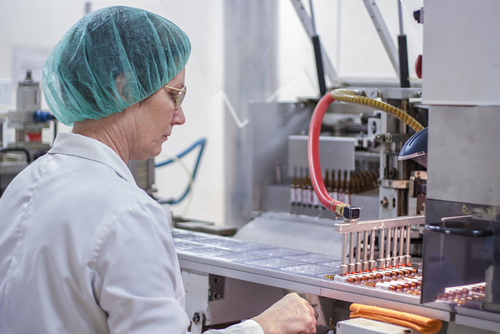
Bill Gates recently spoke out about the potential benefits artificial intelligence could have on the healthcare sector:
“We are in a world of shortage, but these advances will help us take on all of the top problems,” Gates said, CNBC reports. “We need to solve these infectious diseases … We need to help healthcare workers do their job.”
We asked doctors, “Could any part of your job as a doctor be replaced with AI?”
Out of the 1,346 doctors from 42 countries who responded, 58 percent said ‘yes’ and discussed which parts of their job as a physician could be revolutionized with artificial intelligence:
“AI will revolutionize medicine, but it’ll be through synthesizing high volumes of complex data quickly to support medical decision-making and action. It’ll make us as doctors smarter and more efficient, but it won’t replace us by any means.” – Infectious Diseases, US
“I am convinced that artificial intelligence will be increasingly present in our work, especially in the diagnostic field, and will allow us to individualize the therapies according to the response of that specific case. The ‘machines’, though sophisticated, will always need man, but they will save a lot of time and avoid many mistakes. After all, artificial intelligence is based on the principle that the ‘machine’ learns from the amount of data that we humans supply to them: the larger the data base, the more intelligent the machine becomes!” – Gastroenterology, Italy
“Certainly the AI will play an increasingly important role in the medical field. Nowadays CAD systems, ie computer-aided diagnosis, help a lot to detect pathological images in TAC that the radiologist will later evaluate with a sort of second look. This is already helping a lot to speed up the processes of reading images that are now hundreds in a single TC studio! All this also translates into better diagnostic performance.” – Radiology, Italy
“AI can be used in multiple drug data crossings and also through epidemiological guidelines.” – ORL/ENT, Brazil
“It won’t be long before there is AI incorporated into radiographic systems. In the beginning, there will be things like pulmonary nodule and pneumonia detection. Computer aided mammography systems already exist. Increasingly sophisticated systems will follow.” – Radiology, US
The poll was fielded in January of 2017. 1,346 physicians responded to the poll. The margin of error for the global poll was ±3%. More information about Sermo polling methodology can be found here.
Are you a physician? Log into Sermo to weigh-in on public health conversations with other doctors from around the world.



